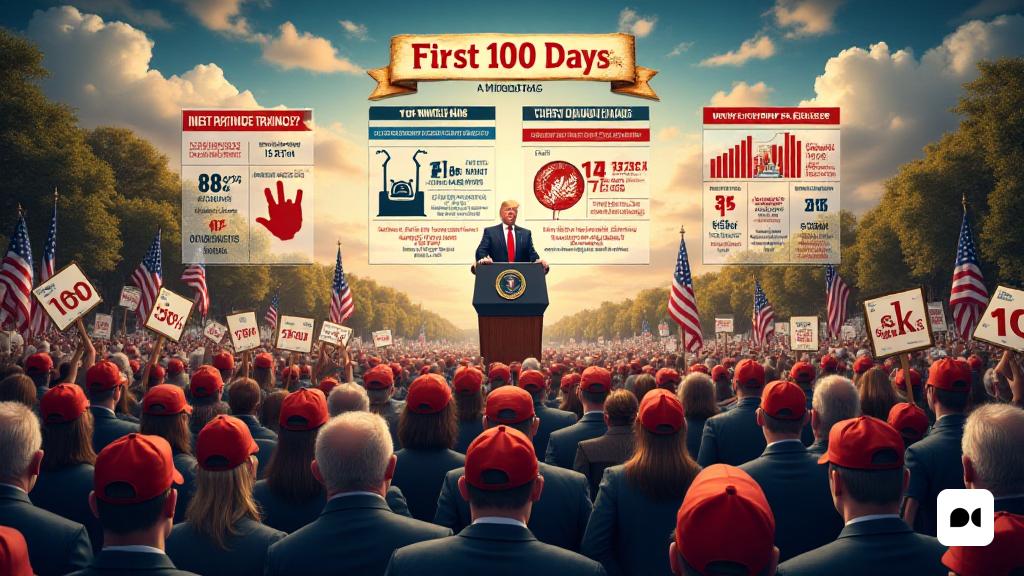The initial panorama of the Mandat
After one hundred days of his second term, Donald Trump has seen a decrease in his popularity, with only 40% of support among Americans, a fall of seven points compared to February. However, his support among voters for the 2024 election remains robust, with an impressive 88% approval, although it has decreased from 94%.
Controversial decisions and changes in the panorama
The first weeks of the term have been marked by decisions that have raised controversy, with little results visible so far. However, the panorama begins to take shape with significant advances on various fronts.
Commercial agreements and diplomatic recognition
In May, significant trade agreements have been reached with China and new tariffs with the United Kingdom, as well as strategic economic agreements with the Middle East countries, including Saudi Arabia and the Arab Emirates. In addition, diplomatic recognition of the Syrian regime and active negotiations with Iran and Ukraine have been emphasized.
Opinions about orange politics and economic expectations
Despite their activity in international trade, 59% of the population disapproves of Trump’s tariff policies, with only 39% supporting them. This perception could evolve if economic results improve. Currently, only 23% of the population consider the economy to be ‘good or excellent’, while 45% provide for a worsening in the coming months.
Political division and support between Republicans
Trump’s measures to reduce government size and eliminate diversity, equity and inclusion policies have caused a polarizing reaction. 55% disapprove of cuts at federal agencies, and 53% reject the abolition of Dei policies. In addition, 51% think they are abusing executive orders.
The challenge of transforming economic perception
Despite general skepticism, Trump retains the support of 75% of Republicans, highlighting a strong political polarization. As the effects of their decisions on trade and investment begin to be seen, public perception could change. The President seeks to attract foreign direct investment with risky policies that do not have immediate benefits in inflation or employment, such as the recent extension of Saudi purchases in the USA.
For Trump, the real challenge will be to turn the negative opinions on the economy into tangible results, if he wants to recover political influence before the next mid -term election.

